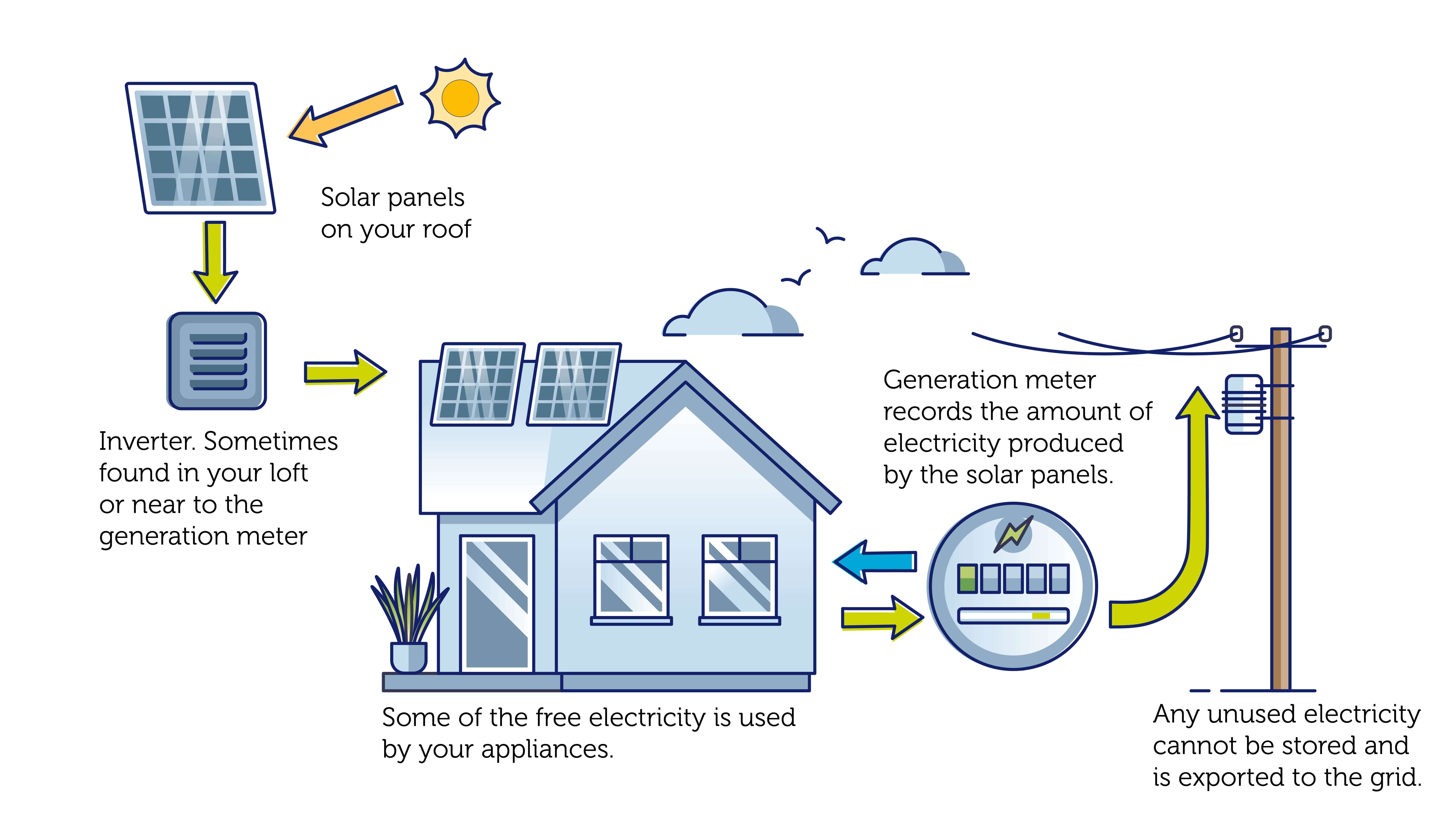
Solar electricity panels, also known as photovoltaics (PV), are installed on a home's roof to capture the sun’s energy and convert it into renewable electricity which can be used in the home.
A solar PV panel is made up of many cells made from a semi-conducting material. When sunlight shines on this material, a flow of electricity is created. The cells do not need direct sunlight to work and can even work on cloudy days (just as well with the great British climate!) However, the stronger the sunshine, the more electricity generated.
Solar panels are fitted at the best possible angle to optimise sunlight exposure.
An inverter is installed inside the home. This is sometimes installed inside a loft. The purpose of the inverter is to convert direct current electricity (DC) into alternating current electricity (AC). The inverter is then connected to the main electricity board and the solar panel to allow the electricity to be used in the home.
PV systems can deliver long-term carbon and financial savings with clear benefits for you and your home:
- You can generate your own energy
- Sunlight is free so your electricity will be cheaper
- Solar electricity is a low carbon, renewable energy.
Top tips and questions if your home is fitted with solar panels
As solar panels generate energy when there is daylight, it’s a good idea to run your electrical appliances such as your washing machine and dishwasher during the day. That way your appliances will use the free electricity generated by your solar panels, reducing the amount of electricity you have to buy from your supplier. If you are not at home during the day, then you can use your appliance’s timers so they run at the cheapest time.
Any generated electricity that is not used in the home will then be exported to the electricity grid.
Can it get too hot for solar panels to work?
A good question given the extreme summer temperatures that are becoming more likely. While high temperatures can have some impact on overall panel efficiency, this is small. And don’t forget that solar power works perfectly well in the deserts of the Middle East!
How do I know if my solar panels are working?
If you are concerned that your solar panels might not be working correctly there are a few checks you can carry out to try and spot any issues:
- Check your generation meter. It should display a meter reading. However, if there is a problem the display could be blank or could display an error code.
- Look at the meter reading on your generation meter. If the solar panels are working your reading will be increasing. By keeping a regular record of the figures on your generation meter, e.g. weekly, you will be able to compare the figures and identify any potential issues.
Do solar panels need cleaning?
Thanks to a solid design and a lack of moving parts, solar panels need little maintenance. The UK’s regular rainfall helps panels stay clean naturally throughout the year. Even if dirt does settle on the panels, there is not a serious drop in solar panel output. We will inspect your solar panels from time to time as part of your home’s ongoing maintenance commitments.
Will the system work during a power cut?
No, for safety reasons, in the event of a power cut, the system will automatically switch off. This safety feature protects engineers working on the fault, as they could be put at risk if electricity were being supplied to the grid during a power cut. The solar panels should automatically switch back on when safe to do so.
We’re here to support you on the journey to a greener future
For more information on sustainable energy options, or to check out our full guide on solar electricity, visit the energy support pages on our Customer Hub.
For further advice, check out our top picks of energy efficiency sources:



